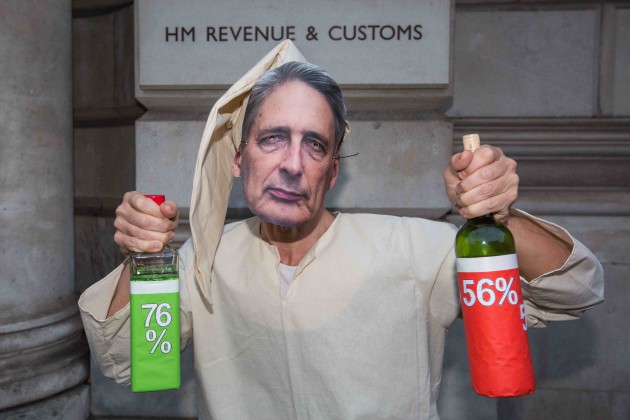
Chancellor Philip Hammond labelled “scrooge”
Philip Hammond is being labelled a “scrooge” after it was revealed he will be one of the worst Chancellors to tax the wine and spirit sector if he pursues the planned increase in the Budget tomorrow (Wednesday, 22 November).
The Wine & Spirit Trade Association (WSTA) has made an analysis of the previous Chancellors based on average annual increase.
If he pursues the planned RPI duty increase, which will mean an overall 7.4% increase, he will be the second worse Chancellor for duty increases in spirits just behind John Major at 10%. On wine he would become the fourth worst Chancellor behind Geoffrey Howe, Alistair Darling and John Major.
The WSTA is calling on the Chancellor to freeze wine and spirit duty in tomorrow’s budget claiming the “sneaky inflationary increases” will rake in £1.9 billion over the next five years.
The trade association said that this Christmas 53.5% of a typical festive booze shop would go on tax if Hammond fails to find his Christmas spirit on Budget day.
Last year consumers paid £88.55 in tax on the cost of the average household’s festive alcohol shop, which was 51% of the total cost.
These calculations are based on a typical festive season shop, consisting of 5 bottles of wine, 2 bottles of Champagne, 2 bottles of sparkling wine, 3 bottles of spirits, 2 bottles of port, 24 cans of beer and 12 ciders.
If consumers chose average priced bottles or cans it would set a UK family back £173.83, of which £92.95 will go directly to the Treasury.
“The Chancellor can avoid being labelled a Scrooge this Christmas by freezing wine and spirit duty at tomorrow’s budget,” said Miles Beale, chief executive of the WSTA.
“A second rise this year will hit businesses hard at a time when they are dealing with higher costs through rising inflation, meeting the challenge of Brexit and decreasing consumer confidence. This will be particularly hard for our industry, its suppliers and consumers, to swallow, coming in the middle of the trade’s busiest period – Christmas.”
The Chancellor raised alcohol duty by 3.9% in the March budget, and has plans for a second rise at 3.4% tomorrow.
The WSTA said wine and spirit industry plays a hugely important role in the UK’s economy, directly and indirectly supporting 554,000 jobs and generating £50 billion in economic activity.




